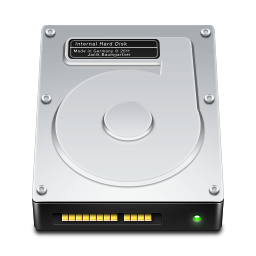Lost Data? Don’t Panic! We Can Help.
Leicester data recovery services and Leicester hard drive recovery from Data Recovery UK, the UK’s foremost data solutions provider for all your Leicester data loss problems.
You can reach our data recovery team at the following numbers:
- Local contact number – 0116 416 1282
- Free from most landline – 0800 999 3282
- Low cost from mobiles – 0333 123 3282
- Emergency data recovery – 07932 824 264
Our team is comprised of industry leaders who have individually between 20 – 30 years in advanced data recovery who came together to build the UK’s premier data recovery service for:
- Home users
- Small businesses
- Large corporations
- Charitable Organization
Incorrect initial action can further damage your hard disk or drastically reduce the chances of a successful recovery. Don’t risk your valuable data and seek expert advice from a data recovery services provider at the first possible opportunity.

No Cost, No Obligation Quote!
Leicester Recovery Services

We believe we offer not only the best value data recovery services in the Leicester area but in the UK as well.
This does not mean we compromise on the quality of our service though and as a full service data recovery provider we use only the best data recovery technology available which means we are often able to recover data that local computer repair companies cannot due to our investment in the latest cutting edge data recovery technology.
We also use very robust recovery protocols to ensure the original data integrity is fully maintained and protected by using deep imaging techniques that can even bypass the hard drives own pcb and software and can even read bad sectors and degraded hard drives that otherwise would be unreadable using lesser technology.
We are also able to offer remote online server backup services and security enabled remote desktop backup solutions to Leicester corporations as part of our business recovery planning and business continuity planning services.
Local Leicester Areas Covered Include
- Abbey Ward
- Anstey
- Aylestone
- Aylestone
- Barkby Thorpe
- Beaumont Leys
- Bede Island
- Belgrave
- Birstall
- Blabey
- Blackfriars
- Braunstone Estate
- Braunstone Frith
- City Centre
- Clarendon Park
- Coalville
- Corby
- Crossington
- Crown Hills
- Dane Hills
- Enderby
- Evington
- Evington Valley
- Eyres Monsell
- Frog Island
- Gilmorton Estate
- Glenfield
- Goodwood
- Groby
- Hamilton
- Highfields
- Hinkley
- Horston Hill
- Humberstone
- Humberstone Garden City
- Kettering
- Knighton
- Loughborough
- Market Harborough
- Melton Mowbray
- Mountsorrel
- Mowmacre Hill
- Narborough
- Nether Hall
- New Humberstone
- New Parks
- Newfoundpool
- North Evington
- Northfields
- Oadby
- Oakham
- Rowley Fields
- Rushey Mead
- Saffron Lane Estate
- South Knighton
- Southfields
- Spinney Hills
- St Matthews
- St Peters
- Stoneygate
- Syston
- Thurmaston
- Thurnby Lodge
- West End
- West Knighton
- Westcotes
- Western Park
- Wigston
- Woodgate
call us now for data recovery help.
business critical data can be easily lost forever if handled incorrectly.
What Others Say About Us
FAQ
We’ve all done it – deleted files when we didn’t mean to. Whether it’s accidentally dropping them in the Recycle Bin, hitting Delete instead of Save or deleting something in DOS without thinking things through first, we’ve experienced that jaw-dropping realisation that we’ve lost work. And you may have experienced even more horror at a hard-drive crash.
However, it’s very rare that those files are completely deleted for good. Even when something really catastrophic does happen – that is, your hard drive seizes – there are professionals that can work digital miracles on your equipment to resurrect the data.
Data recovery is the process of salvaging data from damaged, failed, corrupted, or inaccessible secondary storage media when it cannot be accessed normally. Often the data are being salvaged from storage media such as internal or external hard disk drives, solid-state drives (SSD), USB flash drive, storage tapes, CDs, DVDs, RAID, and other electronics. Recovery may be required due to physical damage to the storage device or logical damage to the file system that prevents it from being mounted by the host operating system.
The most common “data recovery” scenario involves an operating system (OS) failure (typically on a single-disk, single-partition, single-OS system), in which case the goal is simply to copy all wanted files to another disk. This can be easily accomplished using a Live CD, many of which provide a means to mount the system drive and backup disks or removable media, and to move the files from the system disk to the backup media with a file manager or optical disc authoring software. Such cases can often be mitigated by disk partitioning and consistently storing valuable data files (or copies of them) on a different partition from the replaceable OS system files.
A hard disk drive (HDD) is a data storage device used for storing and retrieving digital information using rapidly rotating discs (platters) coated with magnetic material. An HDD retains its data even when powered off. Data is read in a random-access manner, meaning individual blocks of data can be stored or retrieved in any order rather than sequentially. An HDD consists of one or more rigid (“hard”) rapidly rotating discs (platters) with magnetic heads arranged on a moving actuator arm to read and write data to the surfaces.
Introduced by IBM in 1956, HDDs became the dominant secondary storage device for general purpose computers by the early 1960s. Continuously improved, HDDs have maintained this position into the modern era of servers and personal computers. More than 200 companies have produced HDD units, though most current units are manufactured by Seagate, Toshiba and Western Digital. Worldwide revenues for HDDs shipments are expected to reach $33 billion in 2013, a decrease of about 12% from $37.8 billion in 2012.
The primary characteristics of an HDD are its capacity and performance. Capacity is specified in unit prefixes corresponding to powers of 1000: a 1-terabyte (TB) drive has a capacity of 1,000 gigabytes (GB; where 1 gigabyte = 1 billion bytes). Typically, some of an HDD’s capacity is unavailable to the user because it is used by the file system and the computer operating system, and possibly inbuilt redundancy for error correction and recovery. Performance is specified by the time to move the heads to a file (Average Access Time) plus the time it takes for the file to move under its head (average latency, a function of the physical rotational speed in revolutions per minute) and the speed at which the file is transmitted (data rate).
The two most common form factors for modern HDDs are 3.5-inch in desktop computers and 2.5-inch in laptops. HDDs are connected to systems by standard interface cables such as SATA (Serial ATA), USB or SAS (Serial attached SCSI) cables.
Hard disk failures are so common that data recovery is a multi-billion dollar industry. If you need to recover deleted photos, have a hard drive repair, or retrieve data for a business, a data recovery service can help to deal with the panic of losing files and information. Learn how to find a data recovery service and retrieve lost information for peace of mind. Have a question? Get an answer from Our Data Recovery Experts now!
Source: http://www.ehow.com/how_6377363_data-recovery-service.html
View Larger Map
Leicester is a city and unitary authority in the East Midlands of England, and the county town of Leicestershire. The city lies on the River Soar and at the edge of the National Forest. In the 2011 census, the population of the Leicester unitary authority was 330,000, the highest in the region, whilst 480,000 people lived in the wider Leicester Urban Area in 2011, making Leicester the tenth largest city in the United Kingdom and the UK’s fourteenth largest urban area. It is the largest city in the East Midlands with a population of 330,000 and second largest in the Midlands behind its much larger neighbour Birmingham. It has the second largest urban area in the East Midlands region. Eurostat’s Larger Urban Zone listed the population of Leicester LUZ at 806,100 people as of 2009. According to the 2011 census Leicester had the largest proportion of people aged 19-and-under in the East Midlands with 27 per cent.
Leicestershire is a major commercial and manufacturing centre. Its economy is the largest in the East Midlands, accounting for almost a quarter of the region’s GDP (£11billion) and providing jobs for 437,000 people.
“Unlike almost every other city in the UK, Leicester has retained a remarkable record of its past in buildings that still stand today”. Ancient Roman pavements and baths remain in Leicester from its early settlement as Ratae Corieltauvorum, a Roman military outpost in a region inhabited by the Celtic Corieltauvi tribe. Following the demise of Roman society the early medieval Ratae Corieltauvorum is shrouded in obscurity, but when the settlement was captured by the Danes it became one of five fortified towns important to the Danelaw. The name “Leicester” is thought to derive from the words castra of the “Ligore”, meaning camp of the dwellers on the (river) Legro. Leicester appears in the Domesday Book as “Ledecestre”. Leicester continued to grow throughout the Early Modern period as a market town, although it was the Industrial Revolution that facilitated a process of rapid unplanned urbanisation in the area.